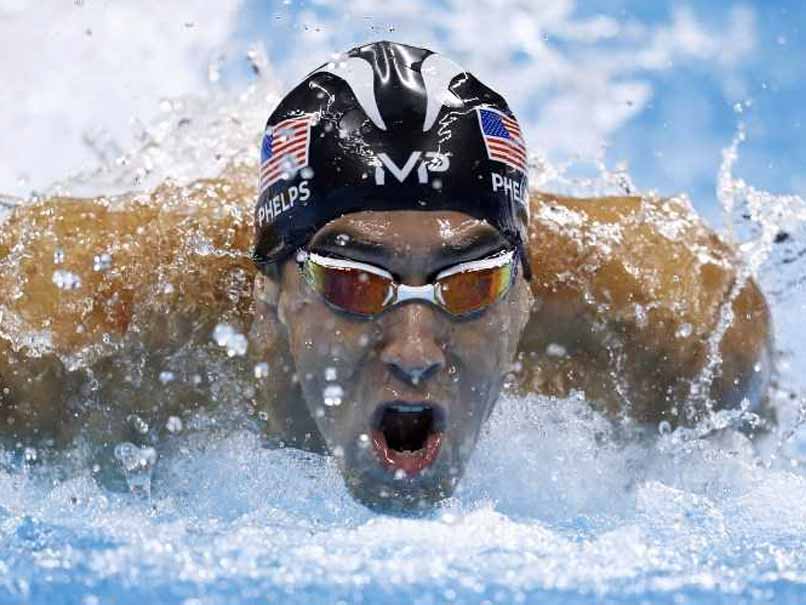Michael Phelps Vs. A shark: The Bizarre History Of Humans Racing Animals
Phelps, the winner of 23 Olympic gold medals in swimming, is racing a shark Sunday night during the Discovery Channel's annual Shark Week
- Michael S. Rosenwald, The Washington Post
- Updated: July 24, 2017 11:48 am IST

Highlights
-
Michael Phelps will race a shark on Sunday night
-
He will be racing as part of Discovery Channels Shark Week
-
He is the most decorated Olympian of all time with a total of 28 medals
A few months after embarrassing Adolf Hitler by winning four gold medals at the 1936 Summer Olympics in Berlin, Jesse Owens traveled to Cuba for an exhibition race against Julio McCaw. Owens was the fastest runner in the world, but when he lined up against his opponent during halftime of a soccer game, he looked clearly outmatched. McCaw was bigger, more muscular.
He also had four legs.
McCaw was a chestnut gelding.
The history of sports - and the history of marketing stunts - is filled with stories like this, somewhat to the non-delight of animal rights activists.
Human vs. horse. Human vs. cheetah. Human vs. ostrich. Human vs. dog.
And now, human (Michael Phelps) vs. shark.
The motivation for these challenges are typically commercial and often silly - none more so than the short-lived Fox TV show, "Man vs. Beast." Dwarfs race an elephant pulling an airplane. Pro eater challenges bear to hot dog eating contest. Champion sprinter beats giraffe in race but loses to a zebra.
Phelps, the winner of 23 Olympic gold medals in swimming, is racing a shark Sunday night during the Discovery Channel's annual Shark Week, which also includes programs titled "SHALLOW WATER INVASION," "SHARKS AMONG US," and "AIR JAWS: NIGHT STALKER." (Anyone who watches these shows while vacationing at the beach is missing a few sea shells upstairs.)
"I've raced the fastest swimmers on the planet," Phelps says in a (ahem) promotional video. "Except for one."
And ... cue scary shark image.
While most human vs. animal races are promotional, at least one was to settle a bar bet. That's how the annual Man vs. Horse Marathon got started more than 35 years ago in Wales, a place not lacking in collective alcohol consumption. Sports bookies take bets. The horses have a rider. The runners have their shoes. It goes on for 22 miles.
In 2004, on the 25th anniversary of the race, a known marathoner named Huw Lobb became the first of just two humans to win.
"It is a very unusual event with men running against horses," he said after the race.
Giddy up.
And then there's cheetahs.
Why race a cheetah? Because it's a cheetah! Dictionary entry: "It is the fastest animal on land." Sarah the cheetah has the worldwide land record in the 100-meter dash, at 5.95 seconds. Olympic sprinter Usain Bolt's time at the same distance: 9.58.
Devin Hester and Chris Johnson, both zippy NFL players, raced a cheetah for National Geographic a few years ago. These guys weren't exactly brave - there was a wall separating them from the cheetah. Johnson, racing just two laps, lost. Hester "won." He had an advantage over the cheetah by racing four laps. (Cheetahs can't make quick turns.)
Back in 1936, facing the Cuban horse, Jesse Owens was also given an advantage - a 40-yard head start.
"A crowd of 3,000 cheered the Negro flash enthusiastically," the Associated Press reported.
Owens beat the horse by a few lengths. Though McCaw had nothing to say after losing, Owens was ecstatic, telling reporters, "I would be willing to race a horse without a handicap, even from scratch."
But there was a but: "Provided," he said, "that the animal selected is not remarkably fast."
It was not the last time Owens raced a horse. Unlike Phelps, Owens struggled to earn a living for years, even as a symbol of freedom trouncing Hitler's hate. Owens appeared at promotional events around the world, racing not just horses but trains, cars, and dogs.
"Those races made me sick," he said late in life. "I felt like a freak."
Jesse Owens, a legend, was reduced to what these competitions ultimately are - a sideshow.
